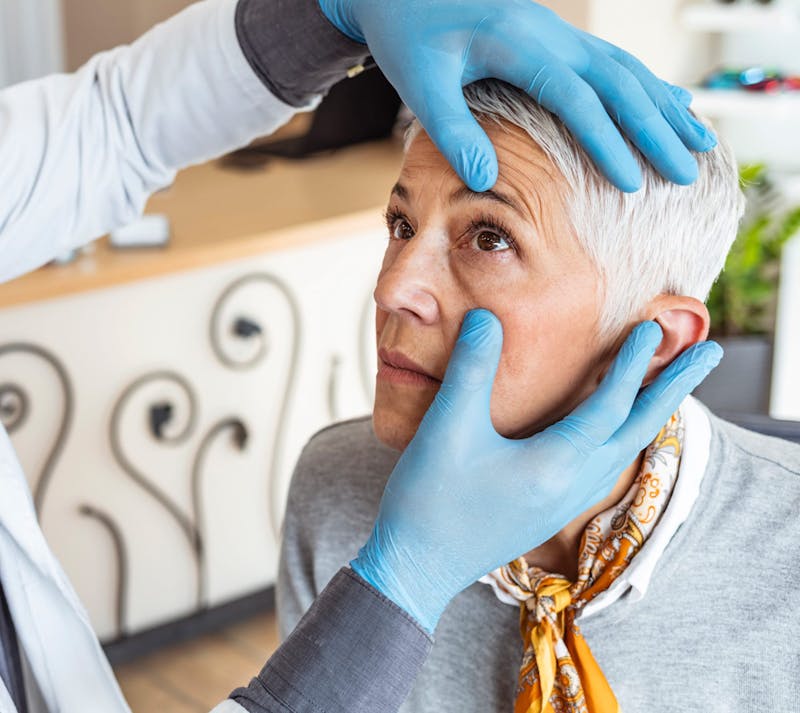
Most people understand the importance of sunscreen for the skin, but far fewer consider the risk UV rays pose to the eyes. Ultraviolet (UV) radiation from sunlight can cause cumulative damage over time, potentially leading to cataracts, macular degeneration, photokeratitis (sunburn of the cornea), and even certain types of eye cancer.
At Chicago Cornea, our board-certified, fellowship-trained ophthalmologists emphasize proactive eye care to help patients maintain long-term vision health. With years of experience treating UV-related conditions, our team offers practical guidance on protecting your eyes from sun-related harm.
Here’s what you need to know to keep your eyes safe year-round.
Smart Ways to Guard Your Eyes from the Sun
- Wear 100% UV-Blocking Sunglasses: Look for sunglasses with 100% UVA and UVB protection. Wraparound styles provide added coverage, preventing rays from entering from the sides.
- Don’t Forget a Hat: A wide-brimmed hat can block up to 50% of UV rays from reaching your eyes and eyelids, offering a simple layer of added protection.
- Avoid Peak Sun Hours: UV intensity is highest between 10 a.m. and 4 p.m. If possible, limit direct sun exposure during this time or take extra precautions when outdoors.
- Use UV-Protective Contact Lenses: Some specialty contact lenses offer built-in UV protection. While they shouldn’t replace sunglasses, they can add an extra safeguard.
- Be Mindful of Reflective Surfaces: Snow, water, sand, and even concrete can reflect UV rays into the eyes. In these environments, eye protection becomes even more critical.
- Protect Children’s Eyes: Kids are especially vulnerable to UV damage because their eyes absorb more radiation. Make sure they wear proper sunglasses and hats when outdoors.
What Happens When You Don’t Protect Your Eyes
Without proper protection, long-term UV exposure can increase your risk for several serious eye conditions:
- Cataracts: UV rays can accelerate clouding of the eye’s natural lens, leading to cataracts that impair vision.
- Macular Degeneration: Chronic exposure can contribute to the breakdown of the retina’s central region, affecting central vision.
- Pinguecula and Pterygium: These growths on the conjunctiva are more common among those frequently exposed to sunlight, especially in windy or dry environments.
- Photokeratitis: A temporary but painful condition similar to sunburn, this can occur after intense UV exposure, especially from snow or water glare.
Signs It’s Time for a Professional Eye Exam
If you’re experiencing discomfort, dryness, changes in vision, or suspect your eyes may have been overexposed to sunlight, it’s a good idea to schedule a comprehensive eye exam. At Chicago Cornea, we use advanced diagnostic imaging to detect and address UV-related damage early—before it leads to permanent vision loss.
Clear Vision Starts with Prevention
The specialists at Chicago Cornea are committed to protecting and preserving your vision for years to come. With locations in Chicago, Highland Park, and Hoffman Estates, we make it easy to access top-tier eye care that focuses on prevention, precision, and patient well-being.

